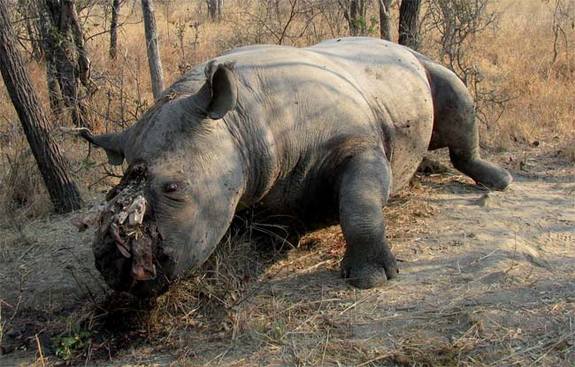South Africa Wants to Sell Its Rhino Horns


Facing record levels of poaching, South Africa is hoping to get permission to have a one-off sale of its stockpiles of rhinoceros horns.
Edna Molewa, the nation's minister of water and environmental affairs, announced that a petition for the sale will be submitted at the next meeting of the Convention on International Trade in Endangered Species of Wild Fauna and Flora (CITES) in South Africa in 2016. "South Africa cannot continue to be held hostage by the syndicates slaughtering our rhinos," Molewa said last week, according to AFP.
The plan might sound counterintuitive —seized rhino horns are often burned to keep them off the market. In this case, the thinking is that a one-off sale will flood the market, making the horns less scarce, and reducing the demand. The money raised would go to conservation and research. But as in most debates around legalizing contraband, not everyone agrees that this scheme will pan out as planned, and some worry it will only stimulate the rhino horn trade.
"If we were dealing with a species where the numbers were not a problem that would be a different matter, but we've passed the tipping point with rhino," Jason Bell, the regional director for southern Africa at the International Fund for Animal Welfare, told the Cape Times. It's a very dangerous experiment and could very easily be detrimental."
Under CITES regulations, rhino horns have been illegal for trade since 1977. Last year, a record 668 rhinos were killed in South Africa, up from 448 the year before. The poaching boom is thought to be linked to demand for the horns in Asia, where the grim prizes are believed to have medicinal properties and are seen as highly desirable status symbols.
Follow Megan Gannon on Twitter and Google+. Follow us @livescience, Facebook & Google+. Original article on LiveScience.com.
Get the world’s most fascinating discoveries delivered straight to your inbox.



